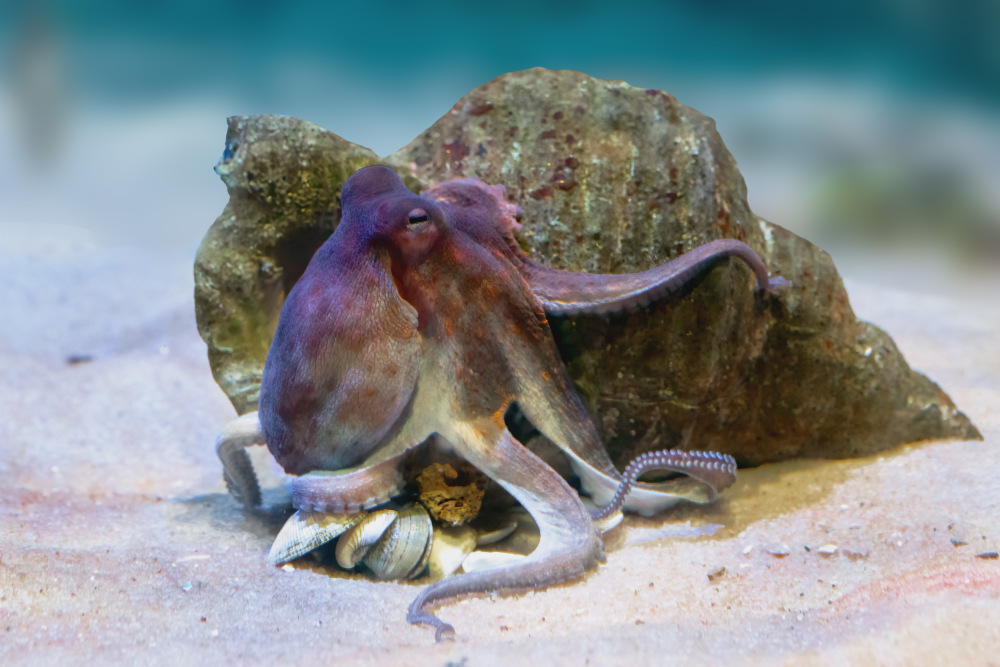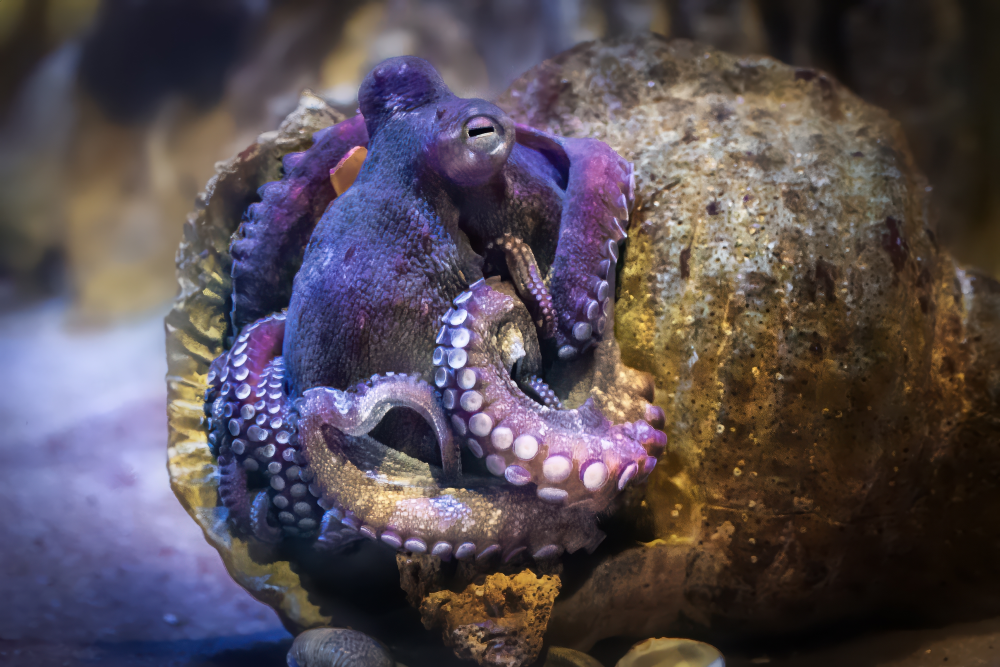A letter signed by 100 scientists has been published in the journal Science, asking for congressional support of the “Opposing the Cultivation and Trade of Octopus Produced through Unethical Strategies” Act. Or OCTOPUS Act, for short. The goal: to push through a federal bill that would make it illegal to farm octopuses, and sell meat obtained through commercial octopus farming.
Octopus farming has already been outlawed in Washington state thanks to a first-of-its-kind bill that was signed into law in March 2024, and similar legislation has been brought forward in California and Hawai’i. However, in the rest of the United States, and the rest of the world, it’s open for consideration.
Octopus farming and animal welfare
The Spanish company Nueva Pescanova is presently leading the octopus farming charge, with plans to open a site in the Canary Islands. According to documents seen by the BBC, the site would raise around one million octopuses annually for human consumption, but can so many highly intelligent animals exist without suffering in such a limited environment?
As this recent letter in Science demonstrates, there are many elements to octopuses that would appear to make them a poor match for commercial farming.

“Octopuses have a large and distributed nervous system, use tools, sense light with their whole body, and taste the world as they touch it.”
Image credit: Diego Grandi/Shutterstock.com
“Octopuses have a large and distributed nervous system, use tools, sense light with their whole body, and taste the world as they touch it,” it reads. “[They are] not suited for a life in a controlled, sterile, and monotonous environment with set diets and regimented feeding schedules.”
“Octopus vulgaris individuals reared in a basic environment that likely mimics that of commercial production became withdrawn, exhibiting behaviors similar to when they are in situations of hostility and conflict. High-welfare commercial farming of octopuses has been deemed ‘currently impossible’.”
That hasn’t stopped people trying in the past, but keeping captive octopuses isn’t easy. Octopus farming attempts in Australia saw good results for meat yield in small juveniles captured from the wild and grown in captivity, but couldn’t support the paralarvae, the earliest stage of an octopus. A report on the project stated: “Commonly observed high mortalities and poor growth in early stages of larval development are thought to be associated with nutritional imbalances of live prey, feed additives and enrichments.”
Octopus farming and the environment
Even if we move beyond the animal welfare and poor hatchery outcomes, octopus farming and aquaculture pose many environmental issues.
“When you put animals into tight confines, they become stressed,” explained Sophika Kostyniuk, Managing Director of the Aquatic Life Institute to IFLScience. “They become more vulnerable to disease, their bodies are more susceptible to infections, so we will definitely see the introduction of antibiotics, pesticides, and fungicides that will flow out into the environment.”

“[Octopuses are] not suited for a life in a controlled, sterile, and monotonous environment with set diets and regimented feeding schedules.”
Image credit: Diego Grandi/Shutterstock.com
“These [farming] sites so far have been proposed right along the coasts and shorelines, so that would be flowing out into the ocean. We know that nitrogen and phosphorus will also be added to the farms – that will also flow out into the environment. We know that octopuses can be highly virulent, so any pathogens that begin to occur on these farms, or viruses, they could also flow out into the environment. We have a lot of concerns around environmental impacts directly surrounding and possibly even further out from these proposed farms.”
Octopus farming: do we even need it?
The final nail in octopus farming’s coffin is that, unlike some other forms of agriculture, its primary purpose doesn’t appear to be to feed hungry people – instead, satisfying the needs of the few to have high-ticket items on restaurant menus.
“The main drivers for an octopus market are increasing exotic meat demand and rising disposable income rather than a need to address food insecurity,” says the letter. “Satisfying luxury markets does not justify the substantial threats that octopus farms would pose to animal welfare and marine ecosystems.”
“The US Congress should support the OCTOPUS Act of 2024 and prevent the inevitable negative consequences of octopus farming by passing the law. Octopuses and the oceans will be healthier if O. vulgaris stays wild.”
Want to know more about octopuses’ intelligence and legal rights? Check out The Big Questions, where we’ll be discussing “Are Octopuses Sentient?” on 17 October.
Source Link: OCTOPUS Act To Ban Octopus Farming Gets 100 Scientists’ Signatures